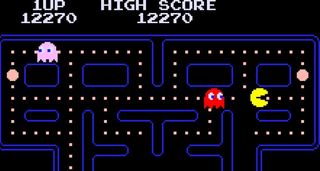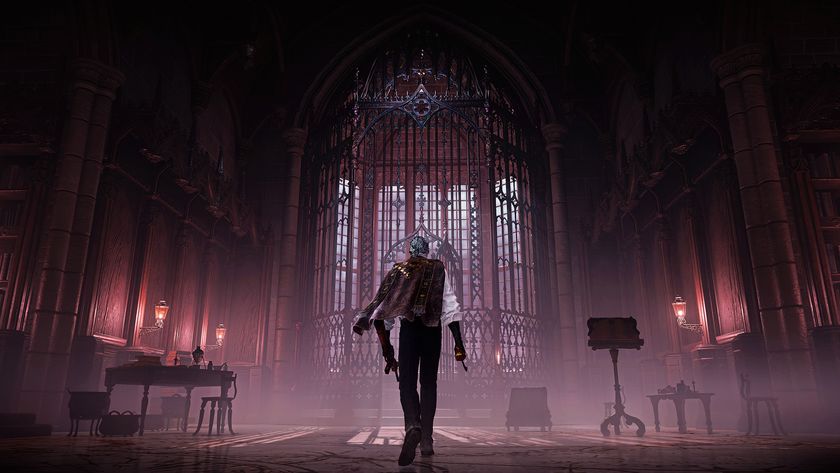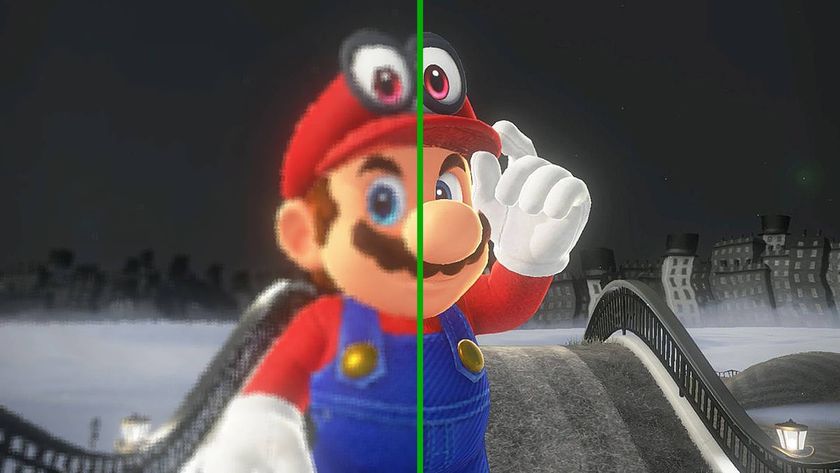High Horse: In defense of high scores
Arcade games had it right. Well, sort of

High Horse is a rotating opinion column in which GamesRadar editors and guest writers are invited to express their personal thoughts on games, the people who play them and the industry at large.
In the days of dark, crowded rooms, neon lights and quarters clinking in pockets, there was a single measure of success: the leaderboard. Those who were able to figure out each game’s particular intricacies were able to record their mark – usually as three white letters on a black screen – next to the record of their achievements. The more successful the player, the higher on the screen they were. Telling who was the best at a particular game was easy – all you’d have to do is take a peek at the list and check out who was on top.

Above: Those numbers used to mean something, etc., etc.
This isn’t a trip down Nostalgia Road. Hell, I’m too young to remember the glory days of the arcade games. I do, however, find it incredibly interesting that games are the only artistic medium that can tell its audience that they’re experiencing a particular work in the way that the creator intended it. By getting the maximum possible score in, say, Pac-Man, you know that you’ve played the game in exactly the way that its developers intended.
In a gaming landscape obsessed with giving the player as much choice as possible, there’s value in telling them that they’re doing something exactly right. Implying that there is an ultimately proper way to play the game tells the player that there’s a particular story that the developer wants to get across. Second, it places value on failure. If the player fails, they know exactly what that failure was worth. If used properly, game narratives could benefit greatly from score systems.

Above: In a less abstract sense, failure used to be worth exactly 25 cents. Kind of chilling when you think about it that way
Obviously, we can’t just go tossing numerical scores into every game we play. Most contemporary games wouldn’t gain anything from explicitly telling the player how they’re doing. Numerical ratings have to actually mean something in the world of the particular game that they inhabit. In a way, games like Bayonetta or Vanquish do something like this. Unfortunately, despite having scores at the end of every level, the scores don’t really have much weight in the narrative. Scoring well or poorly doesn’t mean anything in the long term, other than throwing names up on the leaderboards.
Sign up to the 12DOVE Newsletter
Weekly digests, tales from the communities you love, and more
Fortunately, there are a few games that come close to showing how high scores can hold great meaning within a game’s narrative. L.A. Noire, for example, has a star-rating system that lets the player know how well they did with each interrogation. These ratings are presented as reports from commanding officers, implying that the higher-ups are watching your progress and deciding when Cole Phelps will be ready for a promotion. One of the failures of L.A. Noire comes when Phelps is promoted regardless of the success of the player. If these rankings had any bearing on the way Phelps’ career advanced, they could have been a really interesting way to tell each player’s particular story.

Above: Hey, look at this clue. Or don't! Cole gets promoted either way
In a less direct manner, the BIT.TRIP games have something similar. Each game in the series is seemingly harder than the last, forcing the player to figure out how to play them through trial by fire. With each subsequent attempt, players are forced to look closer and closer to what exactly is happening. The possibility of a new high score is a possibility to discover a new aspect of the game’s abstract narrative.
Granted, I don’t think there have been any games that have successfully wound a scoring system into their narrative, mostly because there aren’t many games that have scores that deal with player failure in a meaningful manner. With a scoring system that implies a perfect way to play, there needs to be an option for those that choose to not follow the stringent rules the developers have put in place.

In the case of L.A. Noire, not scoring perfectly would often lead to a loss of story segments. I’ve praised the idea of losing story for failures in the past, but I think in this case it wasn’t quite the scoring system that was called for. If a low rating from the commanding officers had led to demerits or slower progress through the game, then the scoring system would actually mean something, rather than being completely arbitrary. A rebel bonus, if you will.
A major problem with the way scores are dealt with currently is that most of them are completely arbitrary rankings. They don’t mean anything. In the arcades, a high score would have meaning in more of a meta sense. Those around you would know exactly how well you did, and suddenly your score carried great personal weight. You had achieved something. As it stands, outside of online leaderboards, that value doesn’t really exist. Can we figure out a way to have these rankings hold value in our game narratives, beyond simply showing off who is the best?

So, developers: Tell us when we’re doing it right. Tell us when we’re doing it wrong. Not everything in games has to be completely at the player’s whims. Let scores tell us that we’re adhering to your vision, and let us know when we’re moving away from that vision. But most importantly, make sure it makes sense within the context of the narrative.
Taylor Cocke is a Los Angeles-based writer and producer who spends too much time watching numbers go up in MMOs and ARPGs. You name it, he's written and/or produced for them, which is shocking considering the aforementioned MMO playing.













